Iranian-Dutch Citizen Arrested In Tehran
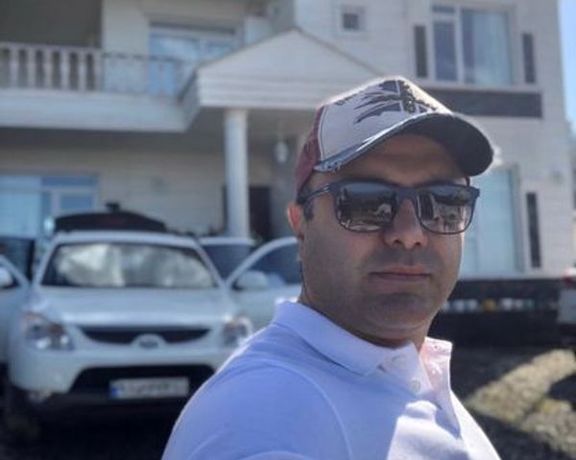
A 42-year-old Iranian citizen, who holds Dutch citizenship and lives in the Netherlands, has been detained in Tehran over suspicions of holding dual nationality.

A 42-year-old Iranian citizen, who holds Dutch citizenship and lives in the Netherlands, has been detained in Tehran over suspicions of holding dual nationality.
According to information received by Iran International, Saeed Farahani had his passport confiscated upon entry into Iran two months ago. He was then summoned to judicial authorities and went to Evin Court but was arrested and detained earlier in August.
Since his arrest, Farahani has had no contact with his family, and his current status remains unknown.
It appears that he was detained due to suspicions of holding dual citizenship, but information received by Iran International indicates that he does not possess dual citizenship.
For many years, the Islamic Republic has detained Iranian citizens who reside abroad or who hold dual citizenship in an attempt to exert pressure on Western governments and to secure concessions in exchange for the release of these citizens.
Recently, Tehran and Washington reached an agreement that would secure the release of five American hostages imprisoned in Iran in exchange for the Islamic Republic gaining access to $6 billion of its blocked assets that were frozen in South Korea.
Commenting on this recent deal, Jake Sullivan, the White House National Security Advisor, stated that the US believes the potential agreement for the release of these five imprisoned American citizens by Iran is still on track, but he refrained from providing a timeline.
Based on this agreement, individuals such as Siyamak Namazi, Emad Sharghi, Morad Tahbaz, and two other unnamed American citizens are to be released. These individuals have already been placed under house arrest until the release deal is finalized.
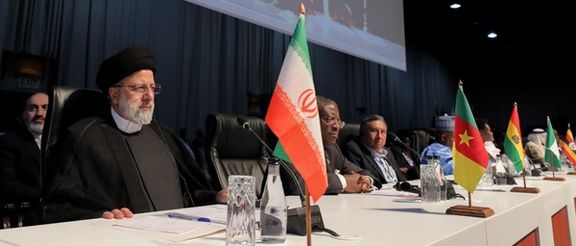
Iranian and Chinese presidents met on the sidelines of the BRICS summit Thursday and emphasized the importance of bilateral and multilateral cooperation, Tehran said.
The official government news agency IRNA carried a report on the summit headlined by a quote by President Ebrahim Raisi saying, “Iran’s membership in the bloc is opposition to American unilateralism.”
The BRICS group of nations reached a broad consensus to invite six countries - Argentina, Egypt, Iran, Ethiopia, Saudi Arabia and the United Arab Emirates - to join, in a move aimed at increasing the clout of a bloc that has pledged to champion the "Global South".
This is a historic expansion, which reflects the determination of BRICS countries to unite and cooperate with other developing countries, Xi said at the group's leaders' summit in South Africa's Johannesburg.
"This expansion meets the expectations of the international community and serves the common interests of emerging markets and developing countries," Xi added.

Raisi told the summit Iran Iran supports efforts by the BRICS group of emerging economies to move away from dependence on the US dollar.
"The Islamic Republic of Iran very resolutely supports the successful endeavors of BRICS in line with de-dollarization from the trade and economic interactions between the members and also making use of local currencies," he said.
Amid its economic isolation from the West and having few trading partners worldwide, the Islamic Republic views BRICS as a possible savior, with continuous propaganda domestically to present its membership as a critical accomplishment.
However, individual countries make economic decisions based on their interests and they see Iran, which is under US banking sanctions, as a risky proposition. The Islamic Republic has also created a heavily government controlled economic system not conducive to foreign investments.
In his meeting with China’s XI Jinping, Raisi emphasized that the invitation for Iran to join BRICS highlights the bloc’s opposition to the United States, and expressed hope that relations with China will be boosted. Tehran already has a 25-year cooperation agreement with Beijing, with details kept mostly secret, but Iranian officials have often referred to a Chinese pledge to invest $400 million in their country. However, in more than two years after the deal was officially concluded there is little sign of any investments.
IRNA quoted President Xi as having told Raisi that his country hopes to expand bilateral cooperation with Iran “to strengthen multilateralism.”
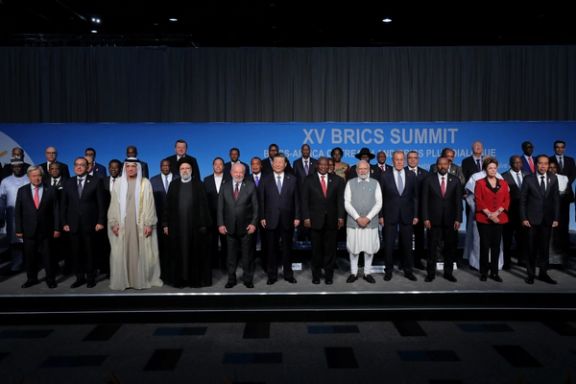
BRICS - whose acronym was originally coined by an economist at Goldman Sachs, currently comprises Brazil, Russia, India, China and South Africa.
Deepening geopolitical polarization in the wake of Russia's invasion of Ukraine and China's declining relations with the United States are spurring efforts by Beijing and Moscow to forge BRICS into a viable counterweight to the West.
"BRICS has embarked on a new chapter in its effort to build a world that is fair, a world that is just, a world that is also inclusive and prosperous," said South African President Cyril Ramaphosa, who is hosting a summit of BRICS leaders.
Henry Rome, Senior Fellow and Iran analyst at the Washington Institute, commented,“Iran’s invitation to the BRICS group likely will provide little in terms of practical benefits. But, like admission to the SCO, it will probably fuel the conviction among some Iranian leaders that Tehran can escape its isolation absent a nuclear deal.”
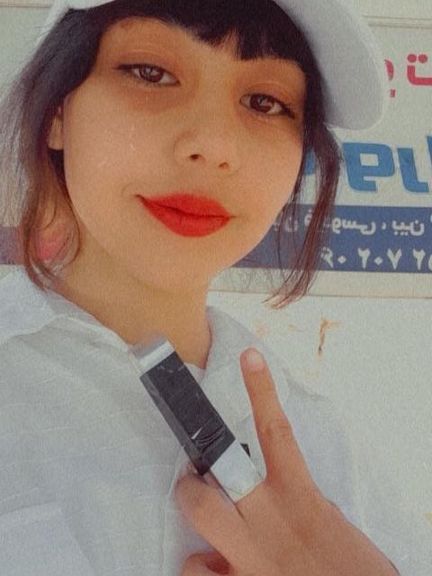
Bita Shafiei, a resident of Shahinshahr in central Iran, who was arrested during protests against chemical attacks on schools, has appealed to the public for support.
Shafiei, a courageous student, who was apprehended during demonstrations against chemical attacks on schools, issued a heartfelt plea urging the public to stand in solidarity with her.
In a circulated video on social media, Shafiei said that the government thrives on instilling fear and warned that without public support, the regime will continue to use to extreme measures against protestors.
In her recorded message, Shafiei revealed that she had endured torture including the fracturing of her fingers, during her trial.
Shafiei is the daughter of Maryam Abbasi Nikoo, a political prisoner held at Evin Prison in Esfahan, detained on charges related to religious insults.
On June 26th, security agents forcefully entered Bita's parental residence with the intent to arrest her. Upon discovering her absence, they subjected her father to physical assault and detained her mother, Maryam Abbasi Nikoo after which, according to sources, the authorities brought charges of religious insults against her mother.
As the September 16 anniversary of Mahsa Amini's death at the hands of the police approaches, the regime has escalated its suppression of activists, students, educators, and writers. Families of protesters who lost their lives during the uprising, as well as civil and human rights activists and students, have become primary targets of the regime's repressive efforts, seeking to silence prominent voices.
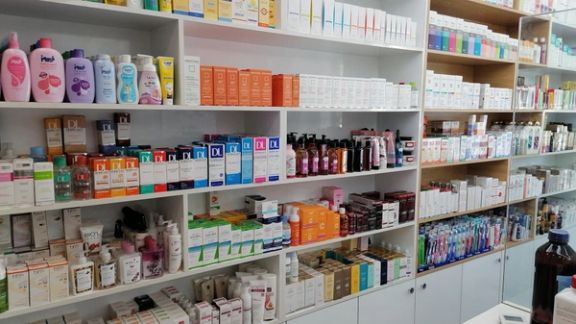
The head of Iran’s Health Economics Commission has warned about the state of the healthcare industry amid price hikes and lack of suitable infrastructure.
Mohammad Abdollahzadeh, head of the Health Economics Commission in the Tehran Chamber of Commerce revealed that the deteriorating state of Iran's pharmaceutical sector is worse than energy and electricity.
His remarks come following reports from Alborz Daroo and Toolid Daroo, prominent pharmaceutical companies, who have recently increased the prices of some medicines. The companies say that price hikes are due to increased costs for raw material.
Abdollahzadeh also highlighted the fact that Iran’s medical industry is operating with antiquated infrastructure, which is hindering the basic ability of production units. "Given the current circumstances, these production units are finding themselves without the means to acquire essential machinery," he said.
Citing data from pharmaceutical companies listed on the stock exchange, Abdollahzadeh said that since 2019, the depreciation rate within Iran's pharmaceutical sector has surpassed the rate of investment, posing significant challenges to sustainability and growth.
While Iranian authorities frequently link medicine shortages to US sanctions, Washington asserts that humanitarian assistance remains exempt from these sanctions. Iran annually imports medicines valued at more than $1.5 billion, with significant quantities originating from Europe, China, and India.
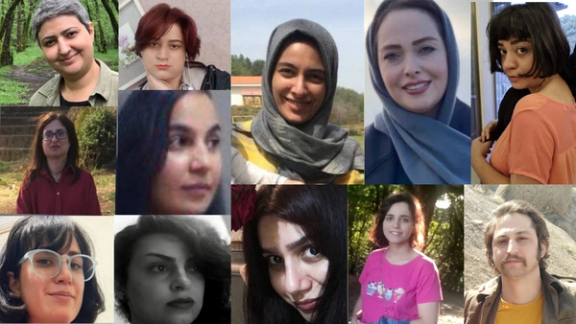
A group of prominent French figures have signed a letter addressed to the Iranian Embassy in Paris calling for the release of 12 activists in Iran.
The letter, from more than a hundred prominent French personalities, draws attention to “illegally detained feminist activists” and more broadly to all prisoners who champion human rights in Iran.
The signatories include Laurence Rossignol, vice-president of the Senate of the French Republic, Olivier Faure, first secretary of the Socialist Party, Sandrine Rousseau, ecologist deputy Nupes and Dominique Voynet, doctor and former minister. Collectively, the group deplores the arrest on August 16 and 17 of a dozen of Iranian women's rights and civil activists in the northern province of Gilan.
The letter, titled "Justice for Iran," was addressed to the Chargé d'Affaires of the Iranian embassy. Central to their plea is the fundamental principle of freedom of expression, as enshrined in international agreements, including the International Covenant on Civil and Political Rights, of which Iran is a signatory.
One week after their arrest, the prisoners remain incarcerated, despite efforts from their families, who are demanding temporary release.
The recent intensified crackdown against human rights activists across Iran coincides with the September anniversary of Mahsa Amini's death in police custody.

Amid an intense intimidation ahead of the anniversary of Women, Life, Freedom protests, the Iranian regime has arrested several more relatives of government victims.
The regime’s efforts to discourage potential resurgence of street protests have continued in the past few days with detentions of family members of Shirin Alizadeh, Mohammad Javad Zahedi, and Esmail Barahouei, who were killed by government forces, as well as Mohammad-Mehdi Karami, who was executed on trumped up charges.
Mashallah Karami, the father of Mohammad-Mehdi, was arrested Tuesday after security agents stormed the family’s home and took electronic devices such as laptops and mobile phones with them.
Mashallah Karami's arrest has triggered widespread reactions, with many Iranians describing it as proof of the regime’s fear of potential unrest on the anniversary of the uprising.
On Wednesday, regime agents raided Nasrin Alizadeh's home, detained her, and transferred her to an undisclosed location. Last week, security forces arrested Kourosh Vaziri, whose 35-year-old wife Shirin Alizadeh was killed by regime agents while she was filming protests alongside her husband and child in Mazandaran province last September. The moment she was shot and killed was captured and recorded on his mobile phone.
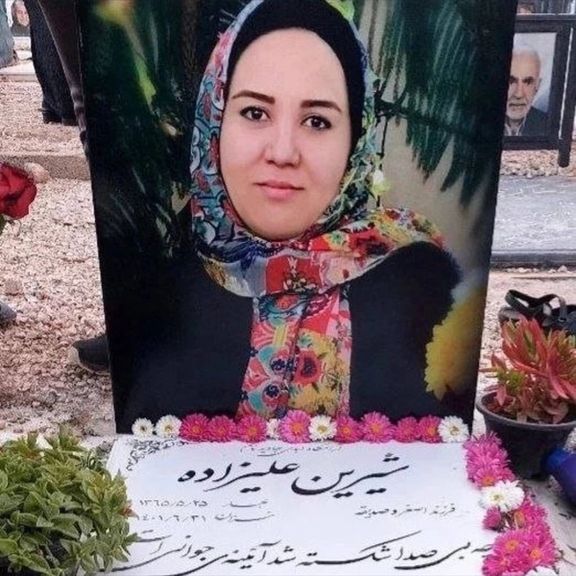
On Wednesday evening, Mahsa Yazdani, the mother of Mohammad Javad Zahedi, was also arrested. Mohammad Javad Zahedi, a 20-year-old from Sari, was wounded by security forces on the night of September 22 and died due to bleeding as emergency services failed to treat him.
Another arrestee was Faramarz Barahouei, the 15-year-old brother of Esmail Barahouei (Abil), who was among those killed on the Bloody Friday in Zahedan. The teenager was arrested by the military in Torbat-e Heydarieh, a city in Khorasan Razavi province 800 kilometers north of Zahedan, where his brother was killed. The crackdown on protesters in Zahedan, the provincial capital of Sistan-Baluchestan, known as the Bloody Friday, took place on September 30,2022, when security forces killed more than 80 people, including women and children.
The regime has escalated its clampdowns on activists, students, educators, and writers in the lead-up to the September 16 anniversary of Mahsa Amini’s death at the hands of police. Families of protesters who died during the uprising as well as civil and human rights activists and students are the main target of the regime’s repression apparatus that wants to silence the most prominent popular voices.
Decrying Iran's campaign of harassment and intimidation, Amnesty International said earlier in the week that the families of those unlawfully killed by Iran’s security forces during the 2022 uprising must be allowed to mark the one-year anniversaries of their deaths. The group also published a new research detailing how the Iranian authorities have been subjecting victims’ families to arbitrary arrest and detention, imposing cruel restrictions on peaceful gatherings at grave sites, and destroying victims’ gravestones. Amnesty International also documented and published images depicting the destruction of graves belonging to more than 20 victims from 17 cities.
Victims’ families have faced reprisals for publicly condemning or lodging official complaints about the unlawful killings of their loved ones by security forces, challenging official narratives about their deaths, calling for accountability, holding gatherings for bereaved families, and writing social media posts deemed critical of the authorities, Amnesty added.
Alan Tofighi, a Paris-based physician and activist, told Iran International that the recent arrests and harassments underscore the regime's apprehension regarding potential renewed protests, to the extent that it even fears the memory of protesters buried in graves. Earlier this week, authorities announced that the family of Mahsa Amini cannot set up a pop-up canopy over her grave, citing the possibility of gatherings as the reason.
Dozens of the victims’ families and protesters who were detained and released during the nationwide rallies in the past year have been arrested or summoned, with reports coming from several provinces, including Tehran, Gilan, Kordestan, West Azarbaijan, and Esfahan (Isfahan).
Those summoned by the intelligence agencies have been asked to sign pledges to stay at home for a week, and some have even been required to take time off from work, ensuring their absence from any protests. They have been threatened with arrest if they are found engaged in any pro-protest movement activities in public or on social media.
So far, seven protesters have been executed, and several others face execution. Hardliner cleric and member of the Iranian Assembly of Experts Ahmad Khatami also issued a stern threat against any future protesters, saying that they would be met with forceful suppression, as if the current rounds of suppression are not forceful.






